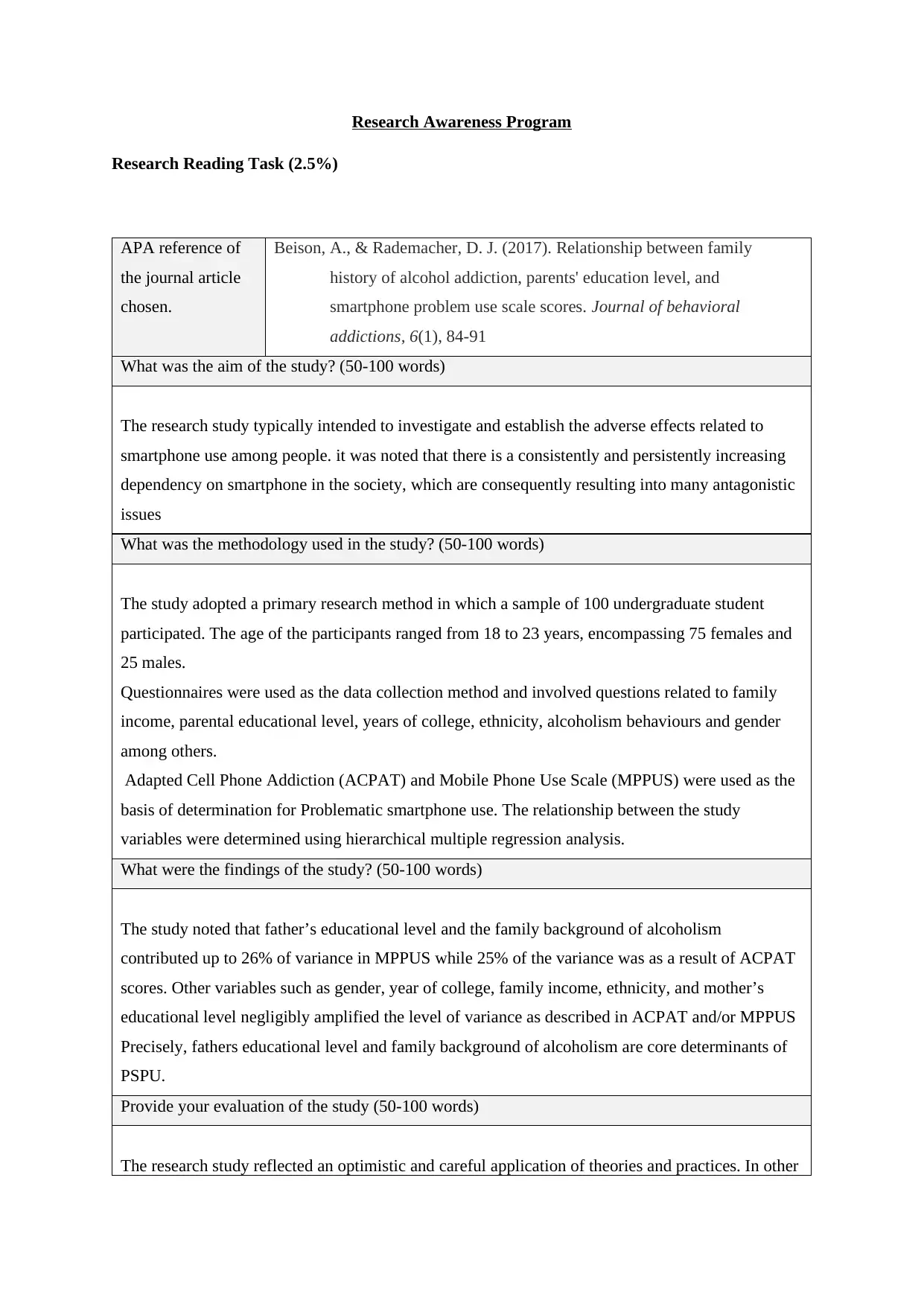Smartphone Addiction: Research Paper Analysis and Evaluation Report
VerifiedAdded on 2021/09/16
|2
|427
|382
Report
AI Summary
This report provides an analysis of a research paper focusing on smartphone addiction, specifically examining the relationship between family history, parental education levels, and problematic smartphone use among undergraduate students. The study employed a quantitative methodology, utilizing questionnaires to collect data on participants' backgrounds, behaviors, and smartphone usage patterns. The findings revealed that the father's educational level and a family history of alcoholism significantly influenced problematic smartphone use scores. The report critically evaluates the study's methodology, findings, and limitations, highlighting areas for further research and emphasizing the importance of understanding the factors contributing to smartphone addiction. The study concluded that the father's educational level and a family history of alcoholism are key determinants of problematic smartphone use.
1 out of 2








![[object Object]](/_next/static/media/star-bottom.7253800d.svg)